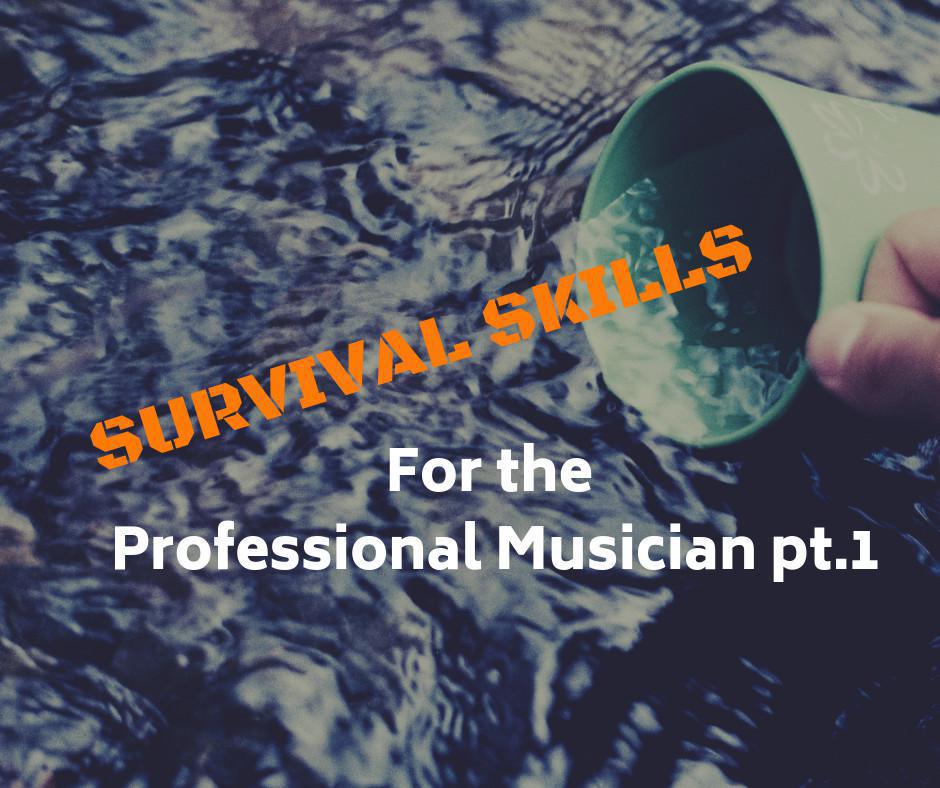Reevaluate the way you listen to music. It may be that you are used to being passively entertained when you put on a CD or go to a concert. There is nothing wrong with that, but as you prepare to become a professional musician (and that includes teaching music as well as performing it), you must be able to generate expressive energy that holds the attention of your audience.
The physical act of playing the trumpet can be very distracting from the most important thing we are responsible for as musicians – the necessity to continuously connect with the listener and having your musical presentation hold their attention in every moment. This doesn't happen overnight. The process of developing these skills will begin with your ability to be continuously connected to the expressive intentions of music when you are LISTENING.
If you find that you currently listening in ways that are not completely tuned in to full attention at all times, challenge yourself to actively focus on every detail that will help you to receive the dramatic energy that the performer may intend. This requires effort, and you will become fatigued by making that effort. That fatigue is a good sign, because it means that you will have more strength in your attention the next time you try. The endurance to develop hours of continuous musical attention can be developed eventually, but it will not start until you begin this challenge.
Working on your ability to be an ACTIVE LISTENER is the prerequisite for your ability to be an active and musically engaging PERFORMER, and it is the best investment you can make to improve your chances to become a successful professional musician. It is difficult to listen as attentively while you are playing, since all of the physical activity can distract your attention. This is why it is essential that you develop the ability to listen with a magnified attention to each moment; our listening skills are less focused when we are performing, and therefore they need to be extra strong on their own!
Spend at least one hour a day listening to music in this way. Tell yourself that boredom and inattention for any length of time is not an option. If you are not mentally fatigued at the end of that hour, you probably are not as focused as you need to be. Here is a helpful tip to help you decide how well you are focusing: Try to have the same kind of focus that you would use if you were trying to understand an important set of driving directions to get to a place you really want to go; you know that if you miss a single detail you will be lost!
Another example is to try to stay focused in the way that you need to when the volume level of the words someone is saying are almost too soft to hear (on the radio or TV). When I listen to the traffic report in my car, I am often in this mode, since the AM radio signal has lots of static in downtown Chicago (I probably need a better AM tuner). Whatever your way of finding the best way to pay attention is, make sure to check yourself frequently to see that you are ACTIVELY LISTENING.
SINGING
---Most students are somewhat hesitant to use their own singing voice as a primary tool for improvement. It can feel a little embarrassing to sing out loud if you aren’t used to doing that and especially if you feel like you don’t have a nice singing voice. Your singing does not have to sound beautiful, but it does have to accomplish the following things:
--It must sound committed and demanding, as though you were trying to convince someone to come with you to a place you know is great, but where they have never been. You are demanding attention in a way that achieves interest and imagination from your audience. This is also the way to be a good story teller with or without music.
--It must have a connected energy that leads somewhere, as if you were telling a large room of ticket holders that “the winning lottery ticket number for the million dollar prize is…” You expect that everyone will be interested in the end of the sentence, and you lead up to that point with a sense of committed urgency.
Notice that there is no mention above of getting the right notes or rhythms right away. That is no accident. You will, of course, want to eventually sing notes and rhythms accurately, but the role that singing can initially play in your training is to condition you to have a constant energy and commitment to your music. It is too often the case that younger players will train their priorities on all of the technical details and then add continuity and commitment of style as the finishing touch. This is not the most efficient way to learn a professional level of musical expression.
Give yourself permission to listen for energy and demand as top priorities, expecting that there will be some crudeness to some of the other aspects of your initial attempts. If you are self conscious about this at first, find a private space where no one will hear you (I have found that the car is one of the best places to practice this kind of singing). Even if every single pitch you sing is incorrect at first, but sung with conviction, that is still a positive tool for your eventual improvement!
Copyright John Hagstrom 2017 (used with permission)






